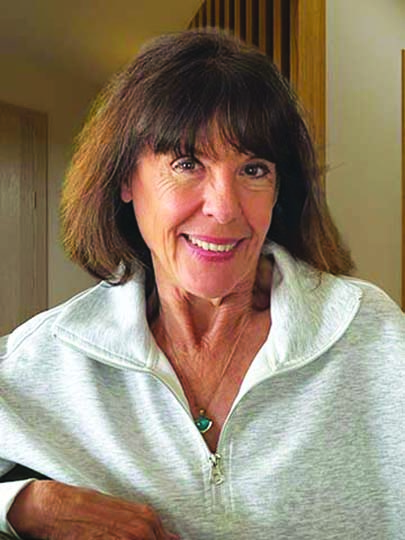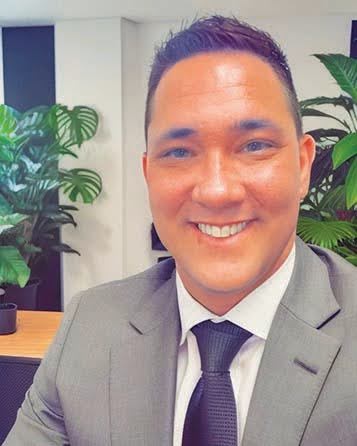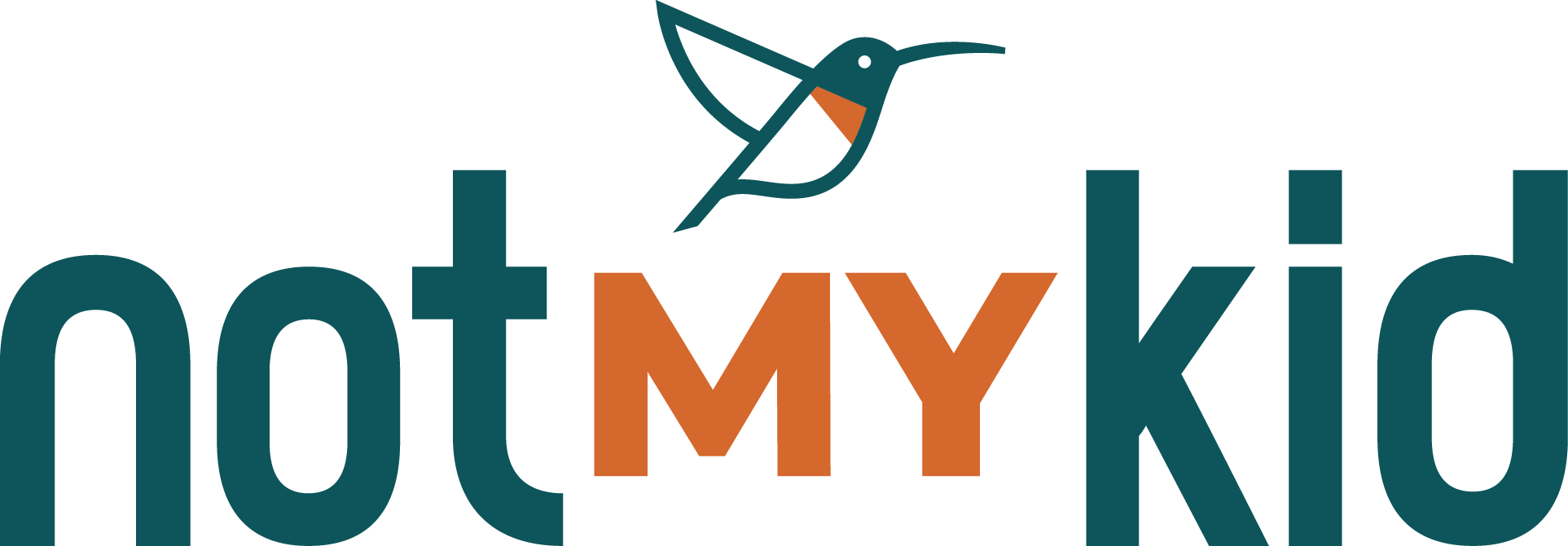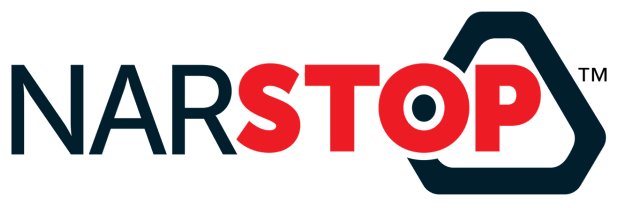A Notable Legacy: Community Bridges, Inc. (CBI)
By Peter Margaritis
Over the next 12 months, Community Bridges, Inc. (CBI) will be sharing stories of recovery from throughout the organization. The stories will come from the men and women who work at CBI and have built a recovery-based program in our community or from individuals who have found recovery through their programs. Since the roots of CBI, Inc. were formed in the Fellowship, we look forward to making 2016 a celebration of recovery with the men and women who make it possible every day for our patients and our communities.
From EVAC to CBI
CBI began as the East Valley Alcoholism Council (EVAC), founded in 1982 by members from the Mesa recovery community and concerned citizens. The original mission of EVAC was to provide transport from the East Valley to the Local Alcohol Reception Center (LARC) in Phoenix (then located by the airport) and provide medical and social detoxification services to East Valley residents.
Our original building, located at 554 South Bellview in Mesa, still in operation today, was formerly an elder care facility that was transformed using dollars from community grants and personal contributions from the founding members of the Board of Directors. Throughout the 1990’s, EVAC was operated by fewer than 30 employees, many who were also in recovery, along with volunteers from local 12-step meetings, 12-step fellowship clubs, individuals in recovery, as well as many who had been impacted by the addiction of family and friends.
For some who started as volunteers to provide a service commitment for their own recovery, EVAC was a place to transform that commitment into action. Volunteers took part in caring for the individuals as they went through detox and then would introduce or reintroduce them to the recovery community that would be their support throughout their recovery journey.
In 1996, all of the good almost came to an end. Budget cuts, changes in funding, and changes in the role of the Regional Behavioral Health Authority (RBHA) threatened to close EVAC just as it had several other small programs in our community. To combat this threat, EVAC’s Board of Directors hired a new CEO and gave a simple directive. “Make it work or shut it down” was the directive that Dr. Frank Scarpati walked into when he assumed the helm in 1996. A man of vision with a tremendous amount of tenacity and a personal ethic to never give up on anyone struggling in recovery. EVAC did not close. The efforts to bring the message of recovery to everyone was enhanced by the building of a new detox center on the existing campus and developing plans for future growth and enhanced stability. While EVAC was growing, changes in behavioral health rules and structure made it increasingly difficult to continue on with volunteers and that program unfortunately ended. Building off the success of our original corps of “volunteers”, we strengthened our belief in Recovery by hiring more individuals who fit the definitions of allowable staff to provide these difficult services.
EVAC became Community Bridges, Inc. in 2002 when we were awarded the contract to operate LARC in Phoenix. With growth comes change, and with change comes the threat of forgetting where you came from and your founding principles. Fortunately for CBI, Dr. Scarpati proved to be a master of change, supported by his own commitment to maintaining our grass roots principles and organizational foundation of recovery. This commitment became the core of CBI as it grew from less than 30 employees in one location in Mesa to almost 1,000 employees in over 31 facilities throughout Arizona.
Executive Leadership
In 2004, Dr. Scarpati introduced a reorganization vision for CBI based firmly on the shoulders of a core team of experts – an Executive Leadership Team or ELT. His ELT quickly pledged their commitment to excellence focused on bringing and creating state-of-the-art best practices to the field of Crisis Management, Medically Managed Detoxification, and expanded medical, psychiatric, and addiction treatment, led by the CBI Chief Medical Officer, Dr. Michel Sucher. Integrating behavioral health and medical health became a positive obsession of John Hogeboom, the CBI Chief Operating Officer (COO), that consumed endless hours of clinical research, administration, studying, and applying correct licensing rules and seeking funding opportunities that would allow us to hire persons in recovery to work for CBI as Peer Support. His goal was to bring back the recovery feeling in full force, ensuring that every person who walked through our crisis and detox programs would be touched by a person in recovery. At that time we had enough funding to hire two Peer Support Specialists and quickly saw the benefit. When an opportunity was presented to respond to a SAMHSA grant, CBI jumped at the opportunity to expand our peer-based programming. In 2007, our application was accepted and CBI was awarded the grant which we called “BluePrints to Life”.
BluePrints is where our story begins on the development of Peer-based programming throughout our organization and consequently throughout the State. The name was taken from a phrase an “old timer” known to one of our employees used to describe the 12-steps at his first AA meeting. The meaning behind the phrase is, “we are with you, we will stay with you, and we will be with you as the miracle of recovery transforms your life from desperation to fulfillment”. BluePrints was a partnership between CBI, Phoenix Police, and Central Arizona Shelter Services (CASS). Time limited in funding, it was more of a demonstration grant to determine whether community-based peers would be successful in working with chronically homeless men and women to help them achieve meaningful and sustainable recovery. Fortunately, the program was very successful and became the “blueprint” for building many of the Peer-based programs CBI operates today.
BluePrints Success
The success of BluePrints not only transformed the way services would be delivered in the community, but also transformed the role Peers played within our organization. Mental Health Peers joined our family as our programs grew, and Dr. Scarpati leaned heavily upon his staff of Human Resources experts to design job descriptions and produce a workforce who would be able to “step up” and once again reinvent CBI.
The HR staff, under the leadership of its energetic VP, Maddie Nichols, took bold steps in order to bring CBI over the threshold established by Dr. Scarpati. HR strengthened tuition reimbursement programs and supported job classification changes that allowed Peers to not only increase their education, but also advance into several new roles throughout the organization. The end result was that Peer Support became a full-time paid entry level position that provided a career track within CBI, guaranteeing recovery support would become and remain the lifeblood of CBI. Many Program Managers, Directors, Nurses, Medical Practitioners, Navigators, Practice Managers, Supervisors, etc., throughout our organization today all have their roots in recovery thanks to the strong commitment fostered by Dr. Scarpati and implemented by the dedicated members of his ELT.
As a company, CBI has enjoyed the opportunity to remain flexible and develop new programs that transform lives through a strong and deep belief in the principles of recovery established by two gentlemen who recognized on their own the road through the forest of addiction is “dark and deep” but mastering the selfless, unwavering support of our brothers and sisters in recovery, miracles will surely occur.
CBI prides itself on its spirit of recovery, not only with the patients who we serve, but also within the staff we hire. CBI has been the beneficiary of opening its doors to those who thought all doors were locked. Realizing recovery is possible, CBI looks for the good each person is capable of contributing and realizing — given the right circumstances, a troubled past can lead to a bright future. CBI employees have many success stories but more importantly “they” are the success stories.
The Gifts
Working in this field, one of the greatest gifts is to watch someone who has struggled with addiction, find recovery and help others. Vicki Helland is the embodiment of this spirit. Vicki began her journey with Community Bridges as a crisis tech and later became a transition coordinator. In the numerous roles Vicky accepted, she never became intimidated by the potential for failure. Vicky collected and arranged each element of a challenge, shared her experience, strength, and hope and overcame every obstacle in her own admirable way. She utilized her personal experiences to develop and then incorporate the peer support principles; such as universality, instillation of hope, and the sharing of her story into an impressive strength-based example for others to emulate. She saw many individuals struggling with the consequences of their addiction, devastated by the loss of families, their self-respect, and in some cases ensnared in the legal system. They spoke of hopelessness and defeat. Vicki was pulled in many directions, “I desperately wanted to impart to them a message of hope, and that recovery is tangible. I am part of an organization that values peer support principles and encourages employees to share their stories in a meaningful way. For the first time, I wasn’t ashamed of my past, and the struggles I experienced were important tools to help others. I am part of a company that embodies recovery throughout the entire organization”.
As an employee and a Peer within CBI, Vicki knew education was a key component to growth and development. She took advantage of CBI’s undergraduate tuition reimbursements and graduate scholarships and pursued her educational goals. “CBI supported me as I obtained Bachelor and Master Degrees in Social Work, and now as I pursue my Doctorate. Education is transforming my life.” As Vicki grew in academic knowledge, her professional career within the organization began to flourish as she was promoted to a manager of the peer support and outreach programs and has since been promoted to be the Director of Peer Support and Outreach. Over the years, Vicki has embodied an “attitude of gratitude”. “I have been granted the gift of watching individuals struggling with addiction on our crisis and detox units walk through our doors sober and passionate about the CBI mission. They fervently share how their lives were touched by a Peer Support who shared their personal story as a gift to a brother or sister struggling to build their own personal recovery story.”
With the support of the ELT and the passion of Vicki, various peer-support programs have been developed, allowing peers the opportunity to advance and to maintain the peer-support values along their professional journey. The impassioned work of the CBI peers in the community led to the development of many successful peer navigation programs: Health, Hope and Home (H3, Project H3 Vets), that supported formerly homeless veterans; Comprehensive Community Health Program (CCHP), which provides intensive peer navigation to homeless individuals who were high-cost, high needs; Assertive Community Treatment (ACT) and the Forensic Assertive Community Treatment(F-ACT) programs for individuals struggling with a serious mental illness and are in need of intensive services.
Recently the addition of the PATH program developed and sustained over the years by Southwest Behavioral Health, has been included as a critical element in the full circle vision of Mercy Maricopa Integrated Care (MMIC) and now as a CBI program that connects critical dots within our statewide system of care.
As the Director of Peer Support and Outreach, Vicki has had the unique perspective of witnessing the professional growth of peers as they become managers, nurses, EMT’s, and counselors and it their impact on CBI is truly re-affirming. Each quarter CBI facilitates peer-certification week, in which new peer support specialists continue their professional journey within CBI. Executive leadership gathers to discuss the importance of peers within our organization, as well as the educational opportunities provided to achieve our desired goals. Peers embrace the message of hope, advancement, and education.
Another success story of CBI is told through the evolution of TJ. TJ reports, “I pushed away all those who cared about me and I stopped caring about myself. I robbed and stole to support my addiction and I hurt everyone around me”. This rampage of destruction continued until May 14th, 2008. This was the last time TJ was arrested, it’s also the date he started his journey to recovery.
Upon his release TJ once again moved into a halfway house, but this time it was different. He did everything that was suggested to him. TJ worked hard and got a sponsor, found a home group, took on a service commitment, and worked the 12 steps of Alcoholics Anonymous. “This is when my life started to change for the better.” It was in April of 2009, while living in a halfway house, on probation, with a suspended license, and four pending felonies for drugs and two pending DUI charges, that he landed a job interview with CBI. During this interview he was brutally honest, sharing all the details of his past, but also how far he had come in sobriety. TJ was hired as a peer support specialist. “I was given an opportunity to go to work every day and share my story with others that were going through similar struggles. I was able to offer hope to the hopeless, to be an example of what recovery can do in someone’s life. Community Bridges gave me a sense of belonging and a place to not only embrace who I am as a recovered addict, but the opportunity to help others find this amazing way of life as well.”
Since being employed with CBI, TJ has held many roles throughout the company, from Peer Support in our detox facility, to numerous management roles throughout rural Arizona. CBI has watched TJ grow as a person, as well as a professional. TJ is now the Manager of Outreach Services in Southern Arizona. “Being a manager of other Peer Supports has also been life changing. The ability to talk about recovery, not withholding or hiding the past, while pushing others to achieve more than they ever thought was possible, well, it’s a dream come true – a dream I didn’t know existed before Community Bridges. In my 7 years of sobriety, I have completely reformed my life. I have paid back debts owed to others (and there were a lot!), I have made amends for past harms done, I have reunited with family and loved ones, and most importantly, I have restored hope in myself, a hope that I can now transmit to others.” In this past year, TJ got married, bought a home, and just welcomed a new baby boy into this world.
In the past two years, CBI expanded services to begin serving the Seriously Mentally Ill population through three Assertive Community Treatment (ACT) teams. These teams provide intensive services to individuals in the community. Elizabeth DaCosta is a Clinical Coordinator for one of the three teams. Just as TJ and Vicki, Elizabeth began her career with CBI as a Peer Support Specialist and was quickly promoted into a leadership role within the Project H3 Veteran program. When Elizabeth began managing the ACT team, fellow peer, Michele Ploof was promoted into the leadership position over the H3 Veteran program. Both of these women have demonstrated a natural ability to lead their teams. They both carry a spirit of recovery in their day to day work. Although both unique in their own experiences, they have been able to make an impact on the patients and staff who they work side by side with each day. As Elizabeth begins to work with new patients she reports, “we begin by doing 90% of the work for them,” and over time that balances out to where the patients are eventually doing 90% of the work themselves”. Elizabeth has committed to this philosophy and it has demonstrated to be an effective philosophy to which she has passed down to the staff she oversees. As Vicki Helland would say, “we rebuild the bridges, until they learn how to build their own”.
There are hundreds of success stories at CBI, all of which just an opportunity was needed. The desire to better one’s self and the open arms of individuals willing to work with those who most would cast away has created an engaging and selfless work environment.
Another employee, Jeremy fits this description well. His struggle with addiction led him to the streets and eventually to jail. It wasn’t until CBI opened his eyes to the fact someone cared for him then something changed. His full circle journey started with his interaction with his peer support. He realized this person had been through everything he was experiencing, but he had made it through. Jeremy’s success has led to a very successful career at CBI. Jeremy was recently promoted to Clinical Coordinator of the new ACT team. “The lesson is that it is important to believe in others even if they do not believe in themselves and to treat every single person with dignity and respect. If recovery is possible for someone like me then I believe at my core that it is possible for anyone. Community Bridges gave me so much more than a chance at recovery as well as a job. Community Bridges has given me a life.”
CBI has grown immensely since its 30 employees in 1994. Today CBI has a staff nearing 1,000 with the strong understanding that at every level our principles hold true. CBI continues to look to the future for growth. This growth is presented in a new step that is in place to help lower our need for recovery efforts. CBI has placed a large emphasis on prevention and the Prevention team is out in the community every day educating people about the dangers of narcotics, prescription drugs, underage drinking, and suicide.
They are CBI’s connection to the community, aiding friends, families, and neighbors with important information that could save someone’s life. As much as CBI has changed and will continue to change in the future, the one constant is that technology is the driving force of what is possible; CBI has made sure it stands at the forefront of the medical technology field. CBI’s IT department has created a cutting edge work environment that has led to better service for our patients and has increased CBI’s reach due to Telemedicine communications. Never has CBI been able to help more people throughout the state of Arizona. The IT team works around the clock to ensure medical records are easily accessible and that all treatment plans can be accessed with a click of a button.
The spirit of recovery is infused throughout every level and every department of CBI. This starts with the patients who are walking through the doors for the first time and continues to the patients who are walking through the doors for the 100th time. Moving to every level of staff, new employees, to executive leadership, the mission of CBI has remained the same, “to maintain the dignity of human life.” At CBI it is simple, no one is denied and everyone gets a second chance.
Peter Margaritis is Communications Manager, Community Bridges, Inc. Visit communitybridgesaz.org

































